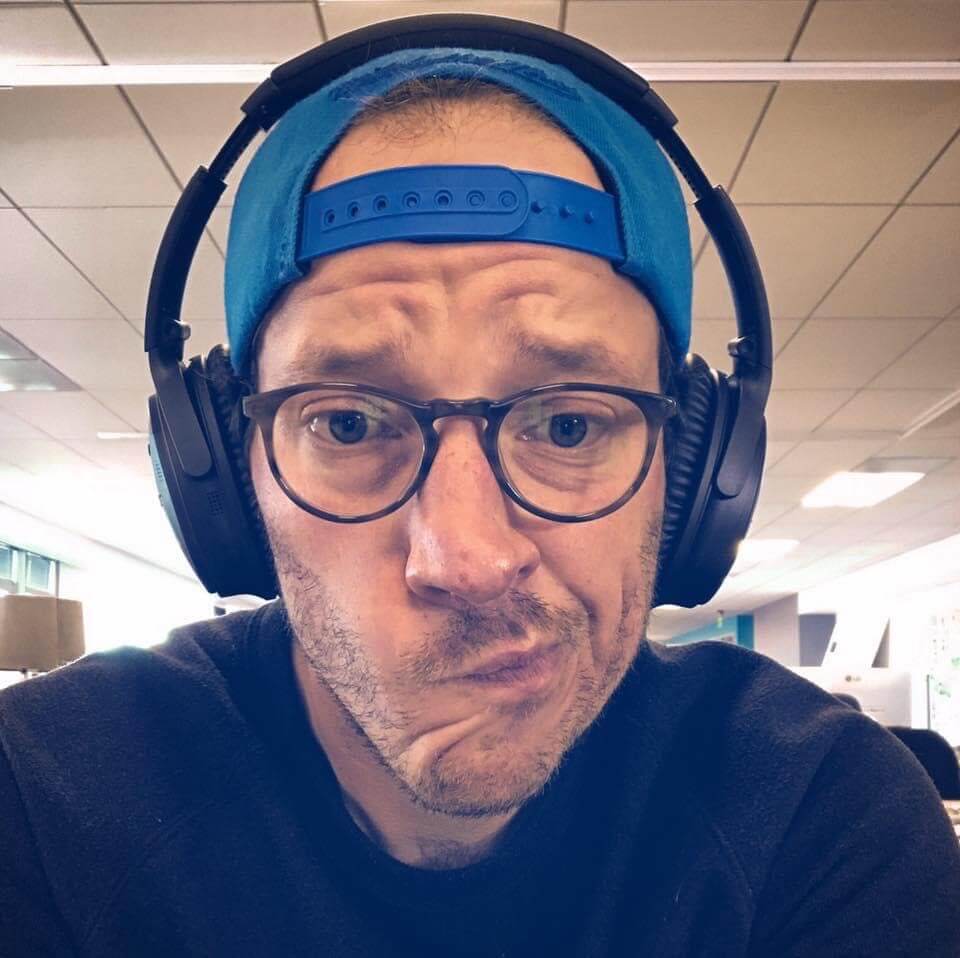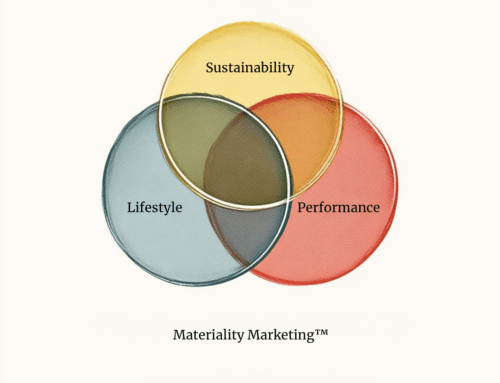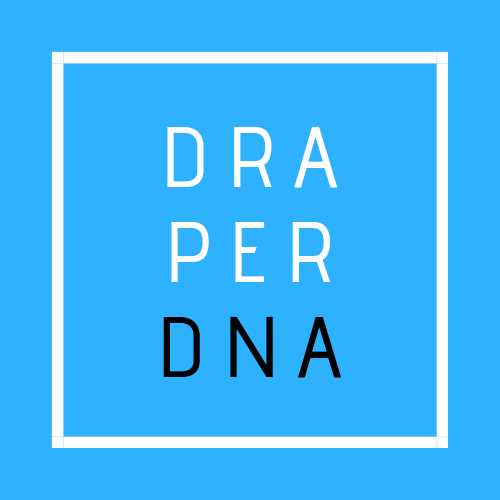There is a Difference featuring Drew Hoolhorst
June 7, 2021
Brilliant, hilarious, and genuine writer, Drew Hoolhorst talks with us about his writing experiences including those brands like Apple, Google, Samsung and AirBnB. His take on using humor in writing is how he makes a difference in the corporate space. We couldn’t be more excited to share his thoughts. Enjoy!
Drew: My name is Drew Hoolhorst. I’m a writer, a creative director and a copywriter. While it may seem trite, writing and copywriting are two very different things. I want to say that out loud before we dive in.
How has using your sense of humor in your writing made a difference in how you’ve accelerated your career?
Drew: Humor is interesting because at first, I thought it was going to be something that held me back because I wanted to be taken seriously. Ironically, whenever I didn’t use humor — because I wanted to be taken seriously — people wouldn’t react well, which set me back emotionally because I’d think, “Why not? I did what you asked me to do.” Then I just kind of said, “F it. If you’re hiring me, I assume you’ve read what I’ve written. And you know that most of this is based on irreverent humor.” I started taking chances on it in serious environments. I wrote for Airbnb’s policy department with witty messaging.
When I started applying humor to everything, I realized I should have done that a long time ago, because even if you’re going to fail, you sound like yourself. Even if people don’t like what you write, it’s a better feeling because you got what you asked for and you knew what you were getting. Honestly, I’d die on that hill. It was a really good way for me to find myself and find opportunities. I learned that when you write like yourself and for you, that humorously, the right people will hit you up and end up being places you would not have expected like Google and Apple. Yes, there are failures but it was interesting to find out that some pretty big fish were dipping their toe in the pool of considering sounding a little more funny or humorous. That was pretty cool to find out.
You were published in Fast Company for your hilarious recaps of the Bachelor. They called you “An unlikely celebrity.” Did that lead to other cool opportunities and what are a few?
Drew: It did. At the beginning, I’d never watched the show and my girlfriend at the time was trying to explain it to me. I thought, “That sounds awful.” She then explained, “It is, that’s why it’s good.” I watched an episode and decided I wanted to write about it, snarkily. My blog posts started to pick up and it was weird when Fast Company wrote, because the posts went from being me joking to being the reverse. Again, this is an example of why I think humor is super important in what you write. Using humor and humility offers something really cool like the Fast Company article.
The “unlikely celebrity” part of it was great, because it got a lot of eyeballs. People were writing and saying all this incredibly nice stuff after reading. Additionally, real job opportunities would come from this joke. People in charge of big companies would write to me and say, “Hey! I really love your Bachelor blog. I would love it if we could find a way to get you in here.” These are ginormous companies and I kept thinking, “Are you sure?” It was kind of hilarious to me to find out that the thing that was going to start getting me jobs wasn’t the rat race of trying to get copy and billboards and commercials. It had nothing to do with my career and actually saying like, “I really like your writing. I bet that applies as well to other styles of writing. Would you write for us?”
It was in one interview that I had, specifically. I showed the article at my interview for Airbnb and it was like a slide and my presentation of myself. After that, I was contacted by Apple and they said, “We really like what you have. All of these great projects you’ve worked on, but we also love your personal writing, like The Bachelor blog.” And I’m thinking, “What? This is hilarious. You guys make the most dominant cultural icons. I’m talking to you on one. And you want to pay me to write for you because I called a girl Mundo? That I was literally like teasing something.” Pretty cool to find out that writing about ‘The Bachelor’ would actually get me paid. Did not see that coming.
Tell me about the cross-country trip you took for Samsung.
It’s crazy actually, because that is the first time, I had a real writing job, a copywriting job. I worked at a company called Mekanism, and they pitched this really awesome idea where at the time — think back to the before times when automatically you couldn’t take pictures and just push it on to Facebook, Instagram or Twitter — Samsung had this digital camera that could do that, right from the camera and it was a cool feature. The company suggested, “It would be amazing if we drove across the country.” At the time I was young with few responsibilities so they asked me to the be writer and help create this documentary. Who says no to that? It was the best thing that ever happened in my career and probably life. It changed me. I still watch it sometimes because I don’t know how I got so lucky. And to remind myself if I’m ever feeling down or discouraged about jobs, or writing, or anything. I think, “No, you can do this. You were in your mid-to-late twenties, you were a bumbling idiot, and this is what it looks like when you write like yourself with courage.” I wish everyone could do it because it’s empowering.
If you could give your younger self any professional advice, what would it be and why?
Drew: Don’t ever try to be something you’re not. Don’t pretend to write or sound a certain way, or push anything that you wouldn’t like if you saw it. Anything you do, anything you write, anything you make, you should always do it with the intention of “If I read that back… if I saw it, I would be proud even if it failed because it sounded like me.” The pieces you end up being most proud of sometimes weren’t the most successful.
The more serious advice I’d give is learn to take some criticism. I just think writers by nature think you’re going to love everything you write. You’re going to think that is the best thing ever. How could anyone change a single word? They don’t get what you’re trying to do. Yes, they do. They get exactly what you’re trying to do. They’ve seen other people try to do that including themselves. They’ve lived longer than you and know that that will not work. If you take it personally and you get mad at these people or you get frumpy and grumpy about it, it’s not a good look. I would argue that it makes it really hard to shake. I’ve done that a couple of times where I got really upset with bosses, with creative directors, with ECDs, with editors and people who wanted me to change something. I really couldn’t take criticism well. I regret not listening to people. I also regret not apologizing.
It’s okay to later in your career or life look back on things and see what you could have done differently. That’s why you write. The best advice I received was that — it’s okay to be wrong. You’re going to find that you make things that are much better when you include other people, and you don’t get it stuck in your head. That the only way that this can work is if you do it and you do it alone, you’re just going to fail miserably.
Thank you, Drew.
Drew goes into greater detail in our video interview (the Samsung story is awesome), so we encourage you to watch as he has lovely insights as a tenured and respected writing pro. Click HERE to see more!
If you’d like to participate in the “There’s a Difference” series, please reach out to Abby at abby@draperdna.com.





